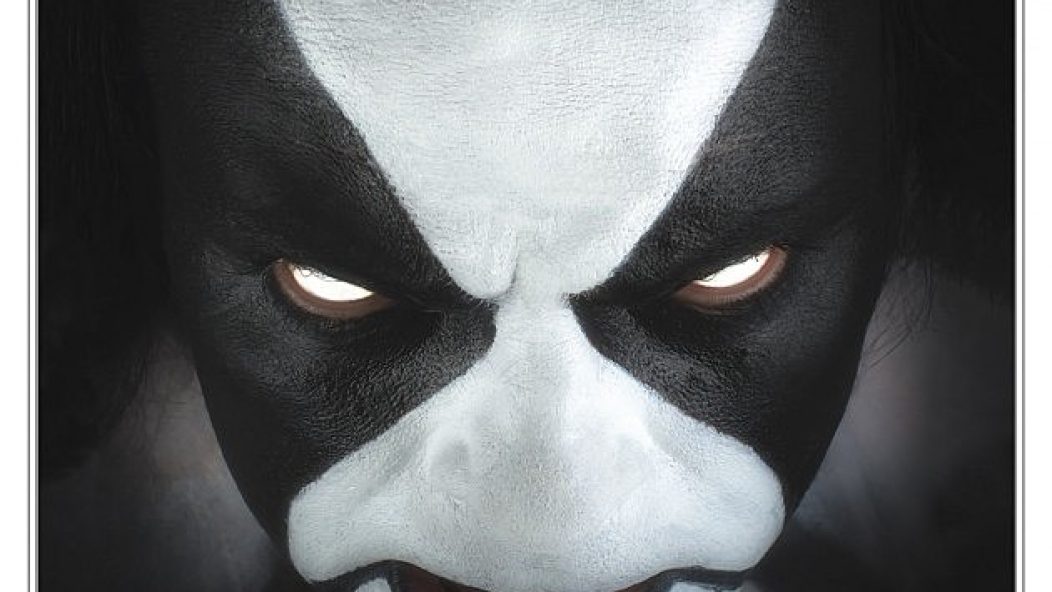
Abbath - Abbath
…
Rejection has always made musician and human meme Olve “Abbath Doom Occulta” Eikemo stronger.
By some accounts, he and former songwriting partner Harald “Demonaz Doom Occulta” Nævdal were the first of what some unpleasant people might call “black metal hipsters”: when they joined forces as the two principal members of Immortal, they had already cut their teeth in the death metal band Amputation before switching to the black metal team. At that time a strong rivalry existed between the two camps. Take this with a grain of salt: according to Varg Vikernes, who played with Eikemo in Old Funeral, they were the first people that black metal rejected.
In a sense, then, true Norwegian black metal would not exist were it not for Immortal; if elitism is one of the defining characteristics of the genre, then the genre doesn’t exist without something from which to differentiate itself. True black metal cannot exist without untrue black metal.
It’s less clear on what ground Immortal were excluded from the Deathlike Silence club, especially since Darkthrone also shifted from death to black metal at the same time but apparently encountered no push-back. Logic would dictate that whatever made them most different from their peers is what qualified them for exclusion. By my estimation, Nævdal and Eikemo were turned away for the blasphemous and revolutionary idea that black metal ought to be entertaining to look at and listen to. Immortal did not invent black metal, but they did invent fun black metal. They designed easily-recognizable corpsepaint, worked out signature stage moves, and embraced populist melodies early on. Never forget: they quoted John Williams’s “Imperial March” from Star Wars in “Pure Holocaust.”
…
…
Immortal were also the first band to overcome black metal elitism. They did so by staying the course (Amalie Bruun, take note) and doubling down on their strengths. Their discography stands well ensconced in the black metal canon now. More importantly, they wrote good tunes and, unlike many of their peers tended to write better songs over time, even as Nævdal became unable to play and Eikemo took over guitar responsibilities.
Now, Eikemo has suffered a second rejection, this time by his former bandmates, who ousted him from Immortal in 2015 pursuant to a legal battle over rights to the Immortal trademark. Again, it made him stronger. Abbath is a better album than Immortal’s last output, 2009’s All Shall Fall, mostly because it sounds exactly like that record, but with the fat trimmed. He stayed the course, doubled down, and increased his winning streak.
Every winning piece of the Immortal formula exists on Abbath. Eikemo’s riffs alternate between tense, distorted chords and cleaner picked passages—lead single “Winter Bane” uses one such bridge in the same way as Immortal classic “Blashyrkh (Mighty Ravendark),” just to drive this point home. Kevin Foley of Benighted doesn’t rely on deep tom fills the way Hogh did, but his time in death-grind bands has honed his sense of propulsion, and his work makes the second half of Abbath hearken back to maybe the fastest and meanest Immortal album, Damned in Black.
Abbath made only small changes, all improvements. Tom “King ov Hell”
Visnes’s bass playing takes a more prominent place than Ole Jørgen “Apollyon” Moe’s on the previous Immortal albums or his own on the Gorgoroth and God Seed albums. Small studio flourishes, like the trumpet blasts that appear on “Ashes of the Damned” add just enough of a symphonic sensibility to make things feel fantastic, but not enough to dip into DImmu Borgir levels of cheesiness.
The fantastic, in retrospect, could have been a major loss had Eikemo not taken pains to include it. Nævdal’s Blashyrkh fantasy world only existed in lyrics and on album covers, but formed a central part of Immortal’s appeal. I can’t imagine anyone enjoying an album like At The Heart of Winter without a pre-existing disposition toward Tolkien, The Legend of Zelda, Dragonlance, or something fantasy related. By giving Eikemo the boot, the remaining members of Immortal are essentially shutting him out of Blashyrkh in the belief that they can perpetuate it without his musicianship.
The fault in that thinking is that Eikemo’s iron claw fretting hand is the sound of Blashyrkh, and his croak is the voice of Ravendark. Those tools can easily be adapted to existing mythology (“Fenrir Hunts”) or any fantastic world of his choosing. Who needs Blashyrkh when we can listen to Abbath and travel to “The frozen wastes of Winter Bane”?
Abbath is, more or less, a pretty good Immortal album. Hell, in the three song run from “Winter Bane” to “Ocean of Wounds” it’s one of the best Immortal albums. It’s nothing new, but newness is not part of Eikemo’s strategy. In the face of adversity his only maneuver is to double down, and until it stops working out in his favor, I don’t see that changing.
—Twitter – @JosephPSchafer
—Instagram – @timesnewromancatholic
…
…
Abbath is out this Friday, 1/22, via via Season of Mist. Follow Abbath on Facebook.
And just because I need to do it every chance I get, here’s your preview of Coachella 2017.

…











